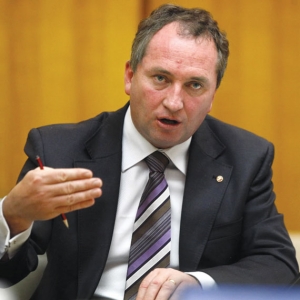The Australian Government has approved the sale of the country’s largest ham and bacon producer to Brazilian meat giant JBS, despite farmer concerns.
As part of the deal, JBS, the world’s largest processor of fresh beef and pork, will allow contract processing at abattoirs newly acquired from Primo Group. JBS is paying A$1.45 billion for Primo.
JBS US is buying Primo from Affinity Equity Partners, an Asian private equity firm that bought 70% of the Australian company in 2011 for A$519 million, and from members of the founding Lederer family, who own the rest.
Australian farmers opposed the deal, fearing the takeover would lessen competition in saleyards and voicing concerns about access to Primo’s Scone abattoir in New South Wales.
But Agriculture Minister Barnaby Joyce says conditions attached to Primo’s sale would ensure local cattle producers’ access to the Scone abattoir for contract processing.
Joyce says the Scone abattoir must remain open and retain its capacity for consignment or custom killings accessible by third parties, otherwise the Treasurer can order the company to divest. Custom service killing refers to arrangements between the abattoir and third parties for processing.
JBS has to report to the Foreign Investment Review Board on its compliance every six months; the deal will be reviewed by authorities every three years.
Joyce says the conditions meet the demands of producers, farming organisations and other concerned stakeholders.
“I acknowledge that there were calls for more than this, but given the Australian Competition and Consumer Commission’s (ACCC) decision, there was every chance we may have gotten less.
“With these stringent conditions in place I believe the treasurer has found an appropriate balance for all parties using his powers under the Foreign Investment Review Board (FIRB) framework.”
However, NSW and Victoria farmers are calling for a Senate inquiry into increasing market consolidation taking place in the Australian red-meat processing sector.
NSW Farmers cattle committee chair Derek Schoen says less competition means farmers lose.
“Our farmers’ ability to get a fair price for produce is dependent upon competitive tension in the marketplace. This acquisition of Primo by JBS will diminish competition and it will be incredibly difficult for any new entrants to enter the market.
“The best way to move forward is for the Government to hold a Senate inquiry into the whole issue of consolidation in the red meat processing sector to enable the issue of competition in the market to be explored properly.”
He says a recent boycott of the Barnawartha saleyard by processors is “a symptom of processors gaining too much market muscle and the issue of processors’ market power needs to be taken further”.
Hockey says the Government welcomes foreign investment in Australia and continues to ensure that investments are consistent with Australia’s national interest.
Meat merger
- Primo Foods established in 1985 by Paul Lederer and other family members
- Grew rapidly to become a leading producer of ham, bacon and smallgoods under the Primo and Hans brands.
- In October 2011 Affinity Equity Partners acquired 70.1% of Primo Group. Since then, Primo has built a new food manufacturing plant in Wacol, Queensland, the largest in Australia, and bought bacon and ham business Premier Beehive in New Zealand
- Primo’s export sales since 2011 have grown significantly
- JBS is the US-based subsidiary of the Brazilian company JBS SA, the world’s largest processor of fresh beef and pork.











